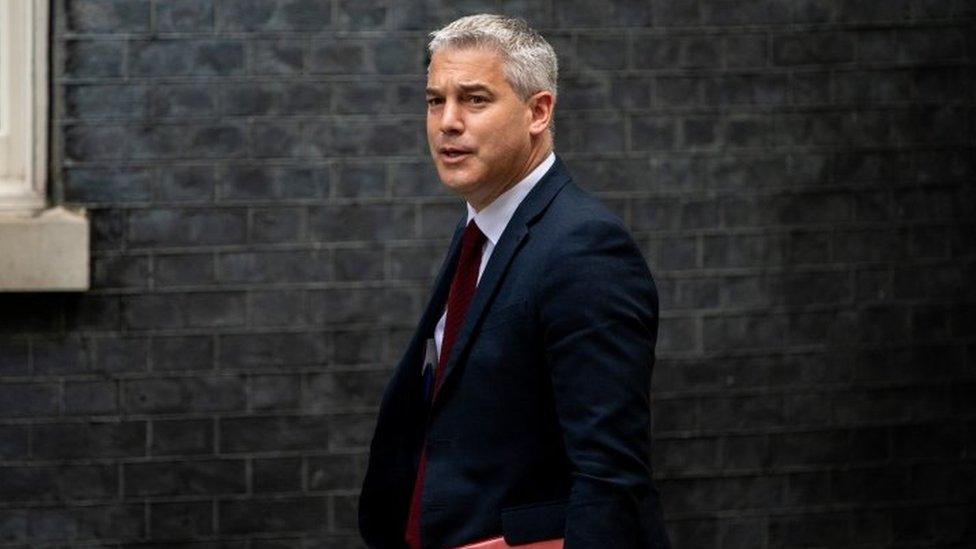EU deplores UK 'voting obstacles' in May European elections
- Published
- comments
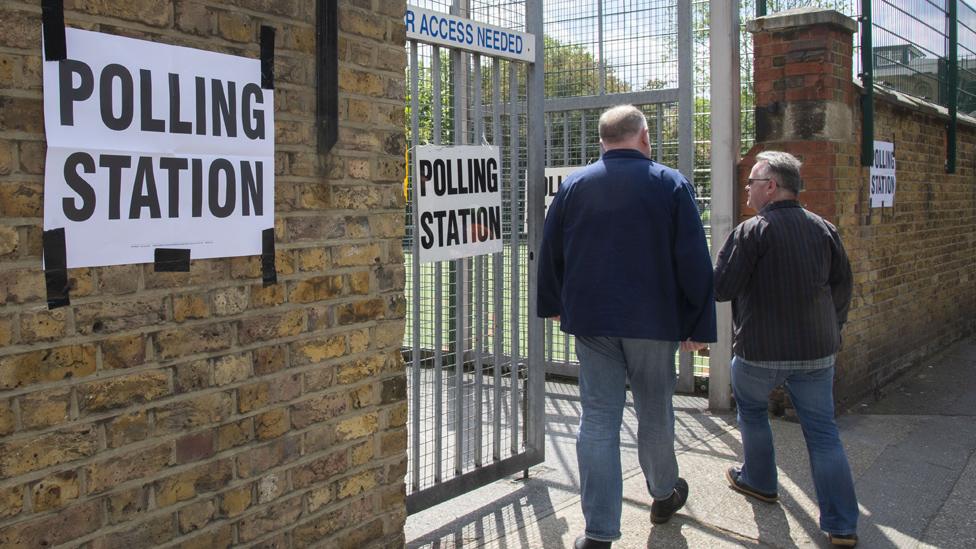
Voting in Greenwich: The anti-EU Brexit Party came far ahead of other parties in the UK
The EU Commission has complained to the UK government over obstacles that prevented many EU citizens from voting in the UK in the European elections.
There was much anger among UK-resident voters from other member states, who found they could not vote on 23 May.
In a letter to the UK Cabinet Office, seen by the BBC, an EU commissioner said those voters faced "a number of obstacles to participation".
The UK government says it "took all the legal steps necessary" before the vote.
EU Justice Commissioner Vera Jourova said in her letter of 21 June that the UK had "the obligation to respect the right to vote of EU citizens and to take the measures necessary to ensure such voting rights can be effectively exercised".
She said that in the 2014 European elections "the same problems were encountered by Union citizens" wishing to vote in the UK. Moreover, she said, the UK had pledged to remedy those issues before the May 2019 elections.
Within hours of the polling booths opening, the hashtag #deniedmyvote, external was trending on Twitter, with EU citizens saying they had been turned away from polling stations in the UK.
Ms Jourova noted that the UK authorities had faced "practical challenges" in organising the elections to the European Parliament, since the UK had been preparing to exit the EU on 29 March, but on 11 April the EU had agreed to extend the deadline to 31 October.
She asked the UK government to provide information about the obstacles that EU voters had faced in the UK, as well as data "on the incidents reported and the complaints lodged with the UK authorities".
The UK hosts about 3.2m nationals from the other 27 member states, while about 1.3m UK citizens live elsewhere in the EU.
The winners and losers of European election night
In order to vote in the UK, EU citizens had to be on the electoral register and had to have returned a UC1 form by 7 May to their local authority, declaring they would not vote in another EU member state.
Citizens of Ireland, Malta or Cyprus were eligible to vote in the UK without having to make that written declaration.
Nigel Farage's new Brexit Party, pushing for an early UK exit from the EU, came top, winning 29 seats. The pro-EU Liberal Democrats came second, with 16 seats.
In a statement on Ms Jourova's letter, the UK Cabinet Office told the BBC: "The UK Government took all the legal steps necessary to prepare for the European Parliament elections, including putting in place all the necessary legislative and funding elements to enable Returning Officers to make their preparations."
The statement also said "the government's priority was to work to leave the European Union before 23 May and so not take part in the European elections".
Ms Jourova said the Commission had received "complaints directly from citizens" about the voting obstacles in the UK.
On 23 May the UK Electoral Commission noted the "frustration" of some EU citizens in the UK, "who have been finding they are unable to vote".
It said "the very short notice from the government of the UK's participation in these elections impacted on the time available for awareness of this process amongst citizens, and for citizens to complete the process".
Ms Jourova's letter said that in many cases EU citizens:
Were not informed of the fact that the national registration procedure had two steps, requiring completion of an "Electoral Registration form" in addition to the "EU citizens - European Parliament voter registration form"
Requested but did not receive the "EU citizens - European Parliament voter registration form" from Electoral Registration Officers
Submitted the "EU citizens - European Parliament voter registration form" but it was not processed, so their names did not appear on the electoral roll
Did not get an adequate response when they complained at polling stations about not being on the electoral roll.
- Published23 May 2019
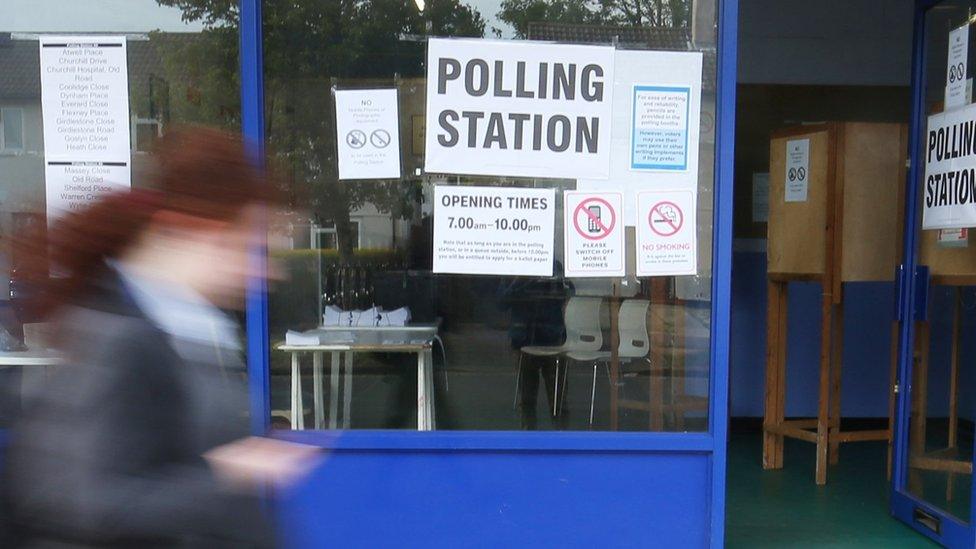
- Published27 May 2019
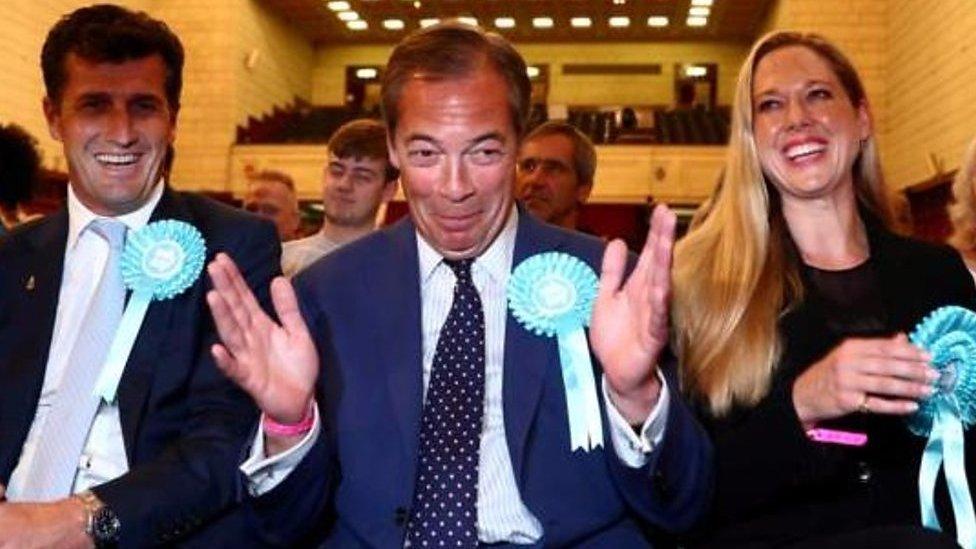
- Published15 May 2019
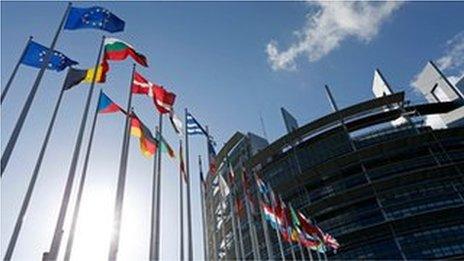
- Published18 June 2019
